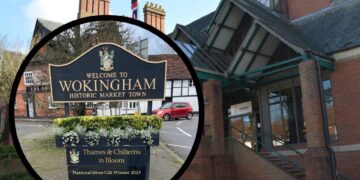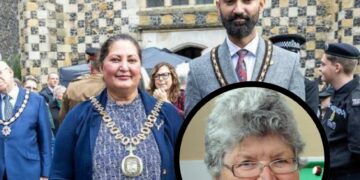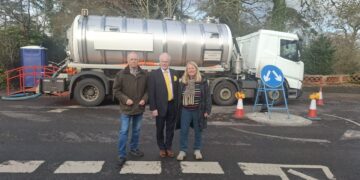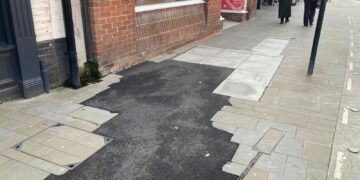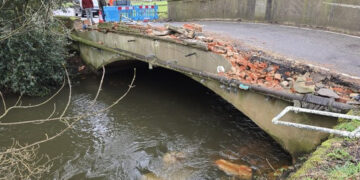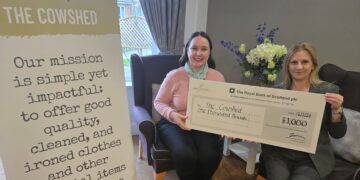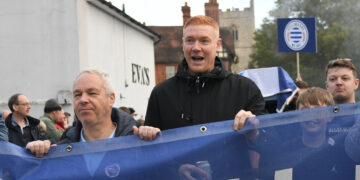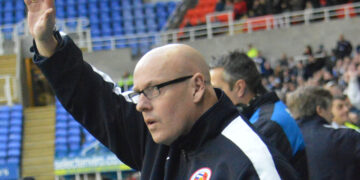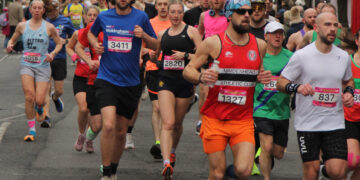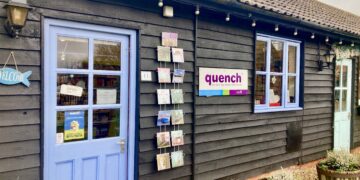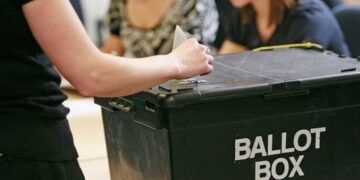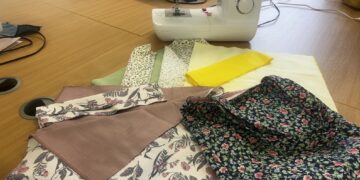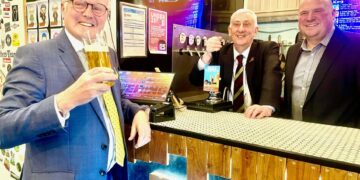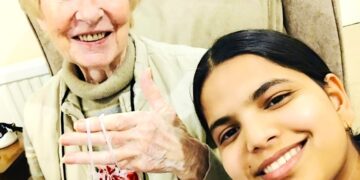A READING charity shared their unusual story, at an event in Bracknell.
Hope And Vision Communities provides support and a home for men who have successfully worked through rehabilitation following drug or alcohol addiction.
The group’s two founders invited an audience of friends and family to hear about their friendship, their work, and their plans for the future.
Russell Brand, English actor and comic, facilitated the discussion, held at Kerith Church.
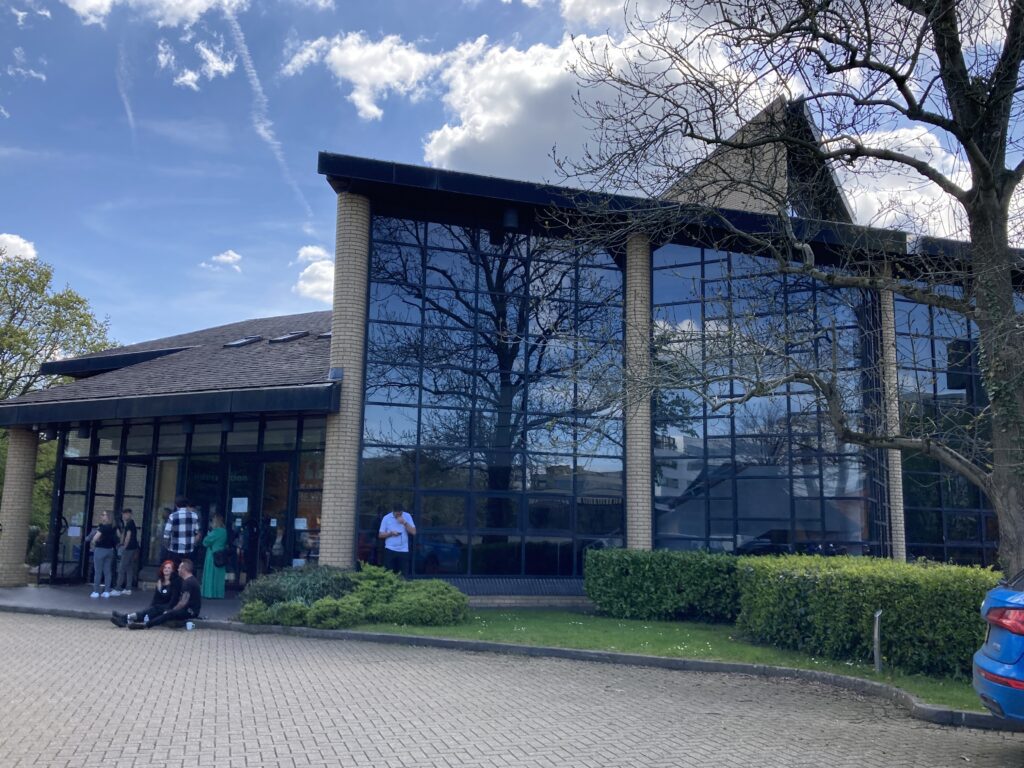
Around 150 audience members came to hear the interview with ex-prisoner Tony Attwood, and Peter Ross, the judge who sentenced him.
The pair launched Hope And Vision Communities three years ago, inspired by Tony’s own experiences of leaving prison, following 15 years as a prolific offender with over 400 arrests, 80 charges and 50 convictions to his name.
“The early part of my life was entrenched in criminality,” he explained.
“It started with addiction that began when I lost my dad.
“I wasn’t equipped to handle the overwhelming emotions I felt.”
Tony self medicated with alcohol and drugs to manage his grief and trauma.
Addiction led to crime.
“I didn’t want to hurt people, but soon I was also trying to subdue growing guilt for the pain I was causing,” he continued.
“I met Peter at a point where addiction had devastated my family,” he said.
“I wanted out, but didn’t know what to do.”
Russell described the low point as a genesis of change in Tony’s life.
Standing before Judge Peter Ross, accused of commercial burglary, Tony expected another custodial sentence.
Peter said: “Tony had descended so far that there was no-where further to fall.
“But he is an extraordinary man, and during rehabilitation at Yeldall Manor, he had found a firm Christian faith.
“I felt there was opportunity for change so I decided to sentence him to a three year residential order there, rather than a prison term, with the proviso that any further crimes would see him straight back at Oxford Crown Court for sentencing.”
Tony worked hard for his recovery at Yeldall Manor.
While there he had an idea to help others in his situation.
He said: “I had been given an opportunity that I didn’t deserve, and now I wanted to be able to help people facing the same difficulties that I had.”
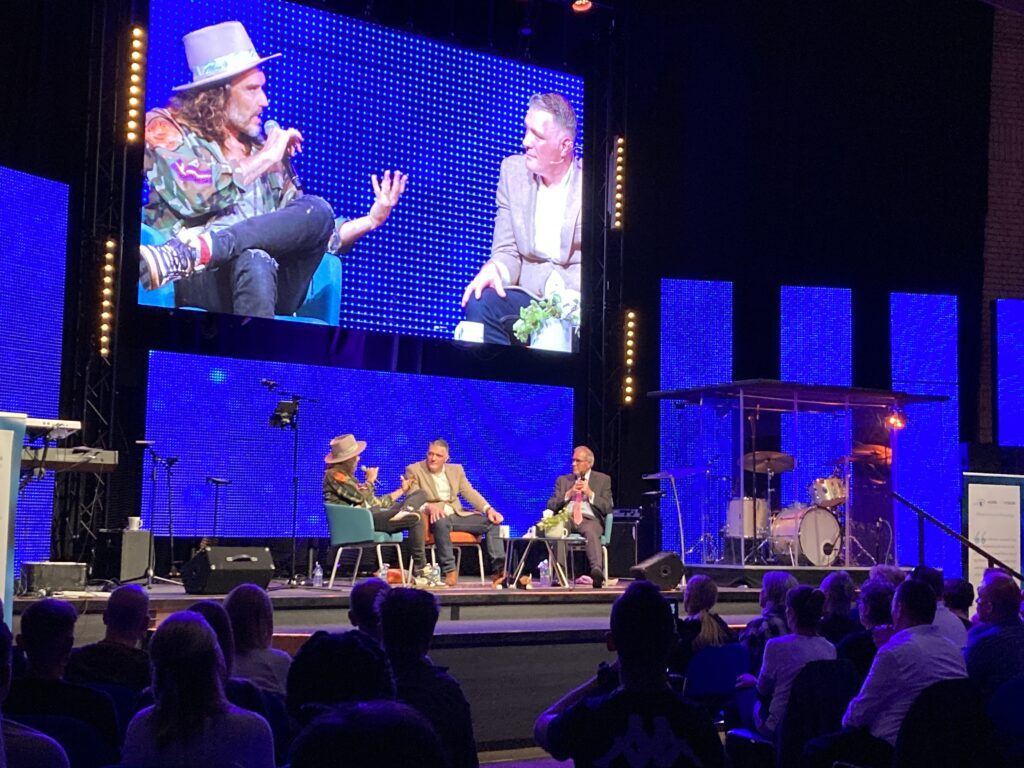
Like many ex-prisoners, prior to his three year residential stay, Tony had found it difficult to cope.
“I was afraid,” he said.
“I didn’t know where to go, or what to do.
“I looked at over 100 job prospectuses, had no references, no history, no jobs, and no previous landlord.
“The barriers were very difficult to overcome, and I felt something needed to be done.”
Tony wanted to provide not temporary lodging, but a home with no pressure to leave, where men could support each other as a small family unit.
But he was nervous about sharing his idea.
“I had never had a voice,” he said.
“Always represented in court by others, I felt muted.”
But he and Peter had become friends, and Tony plucked up courage to share his vision.
The ex-prisoner and his sentencer discussed Tony’s proposal, walking in Yeldall Manor gardens.
Peter told the audience that what happens after prison greatly determines prisoners’ futures.
All too often they can quickly drift back into crime.
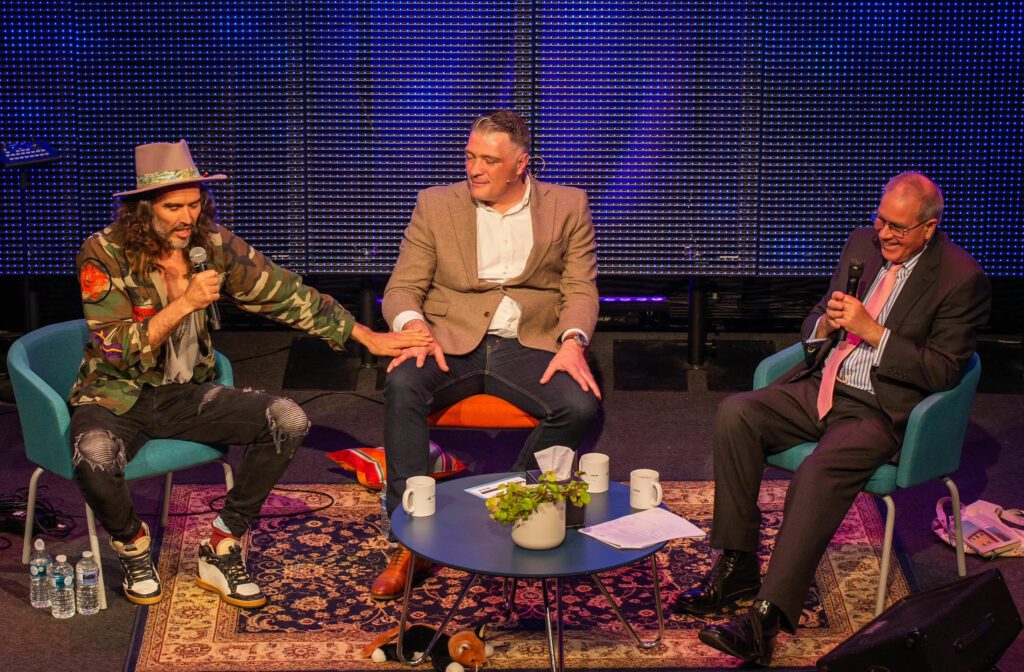
“Prison works for as long as the sentence lasts, but not enough is done to determine what happens afterwards,” he said.
“Breaking the addiction reduces the cycle of crime, but ongoing support, and a safe place to call home is crucial.
“Homelessness and the threat of it are among the prime reasons for a return to jail.
“Around 80% of those in residential rehabilitation will lose their home.”
In September 2020 Tony and Peter set up Hope and Vision Communities.
The charity is flourishing.
Tony and Peter have developed a model of homes clustered around a rehabilitation unit, that they say has been seen to work.
They rent family sized houses in the Reading area, giving men in recovery a safe place to live long-term after treatment.
The men cook meals together and support each other through the ups and downs of life.
“Having access to people they worked with during rehabilitation helps those in recovery,” continued Peter.
“They need ongoing support, and somewhere safe to call home.”
What began with one house and two residents is now seven houses and fifteen inhabitants.
“Soon there will be eight homes and 17 men,” Peter said.
“We’ve doubled the number every year.
“Now we need help to move forward.
What is the vision?
The charity wants to provide more homes for men, clustered around other rehabilitation units.
It hopes to start supporting women and children too.
What is needed?
Over the next three years, the charity must raise £500,000.
It must find new landlords with properties to rent.
It needs new trustees with: experience of living with addiction; fundraising experience; skills to help them develop from a small charity to a medium sized enterprise.
How can people support Hope And Vision?
Financial support can be by single gift or regular giving.
Businesses can sponsor the charity, their name appearing on the company’s vehicle.
Potential trustees can approach the charity.
Landlords willing to help can contact them.

“We’re very good tenants,” said Peter.
“We paint and decorate, and we look after the property.”
As the event closed, Tony thanked his brothers, and paid tribute to his mother, who they very recently lost to cancer.
Russell ended by saying how much he valued having met Tony.
“It’s hard to change,” he said.
“But Tony has been transformed by the possibility of change.
“He has become an asset.”
“My life has been given back to me,” agreed Tony.
Now Tony and Peter want to give others that same opportunity for change.
For information about the charity, and to support the group, visit: www.hopeandvision.org.uk

